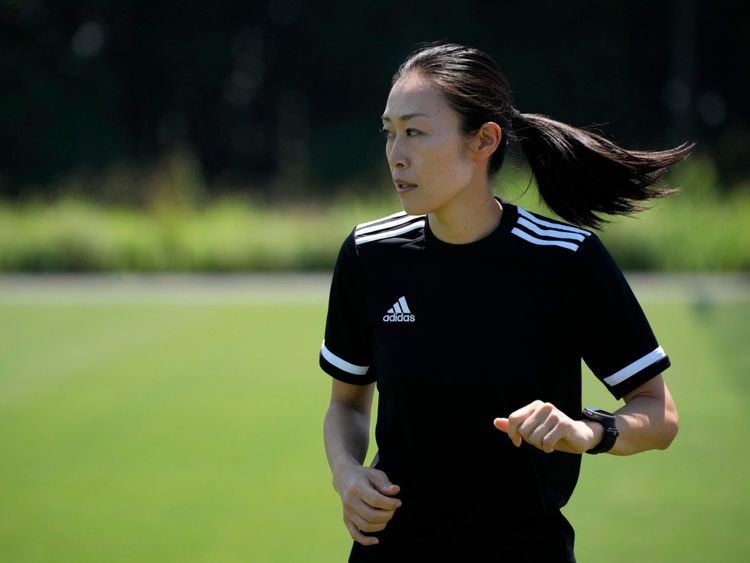The Three Whistle ladies of Qatar World Cup
Salima Mukansanga of Rwanda,Stephanie Frappart of France and Yoshimi Yamashita of Japan are the three women picked to officiate at the forthcoming World Cup in Qatar. It will be the first time Women will take charge at the game’s biggest stage
They are in a pool of 36 referees listed for Qatar – the rest are all men. FIFA has also named three female assistant referees in a pool of 69: Neuza Back of Brazil, Karen Diaz Medina of Mexico and Kathryn Nesbitt of the United States.
Yamashita is aware that her selection put the focus on Japan’s low ranking on most measures of equal pay for women, and in global studies of gender equality.

“I would be very happy if women could play an active role in sports in this way, and if sports and especially soccer could lead this,” Yamashita said. “In Japan, there is still a long way to go in the world of soccer (regarding participation of women), so it would be great if this could connect to the promotion of female participation in different ways, not only in soccer or in sports.”
All three have worked men’s matches, and their World Cup debut comes in a Middle Eastern country where the role of women is closely prescribed.
Frappart is the best known and has already worked men’s games in World Cup qualifying, and the Champions League. She also handled the 2019 Women’s World Cup final, and refereed this year’s men’s French Cup final.
Yamashita has worked games in Japan’s men’s league, and has also been in charge of the Asian equivalent of the men’s Champions League. She was also a referee at last year’s Tokyo Olympics.
Earlier this year, Mukansanga became the first woman to referee an Africa Cup of Nations match, leading an all-female officiating team.
“As always, the criteria we have used is ‘quality first’ and the selected match officials represent the highest level of refereeing worldwide,” said FIFA referees committee chairman Pierluigi Collina, who worked the 2002 World Cup final. “In this way, we clearly emphasize that it is quality that counts for us and not gender. I would hope that in the future the selection of elite women’s match officials for important men’s competitions will be perceived as something normal and no longer as sensational.”
Yamashita said the difference in the men’s and women’s game was, of course, speed. But not simply that some men might run faster.
READ ALSO Women referees at World Cup in Qatar a ‘strong sign’
“Of course, I think the pressure is huge,” she said, “and I think I have a lot of responsibility. But I am really happy to take this duty and pressure, so I try to take it positively and I try to be happy.”
Though it’s likely that all three will be in charge of games, it’s not a given. They could also be used as “fourth referees” on the sideline. However, they cannot be used as assistants.

